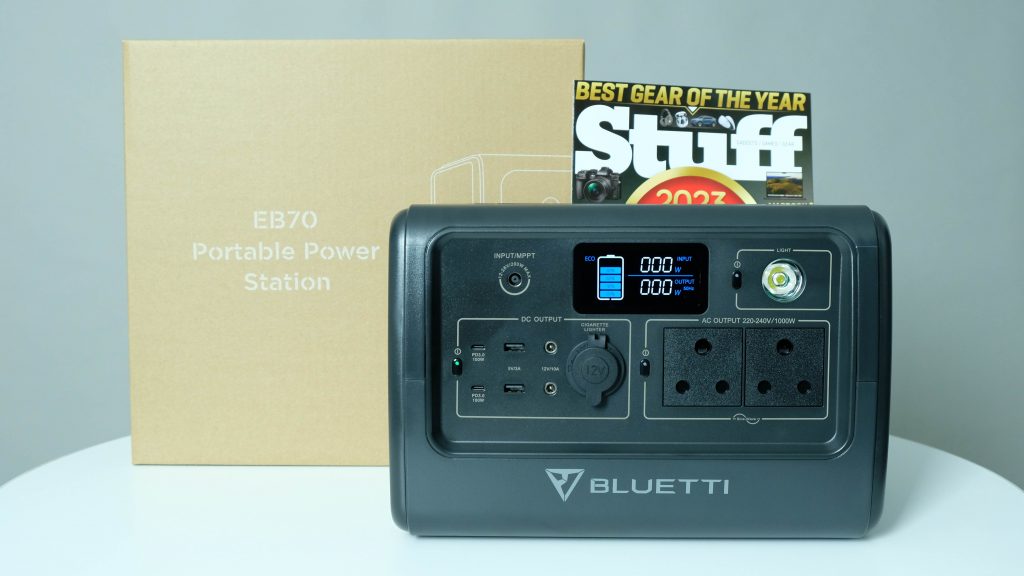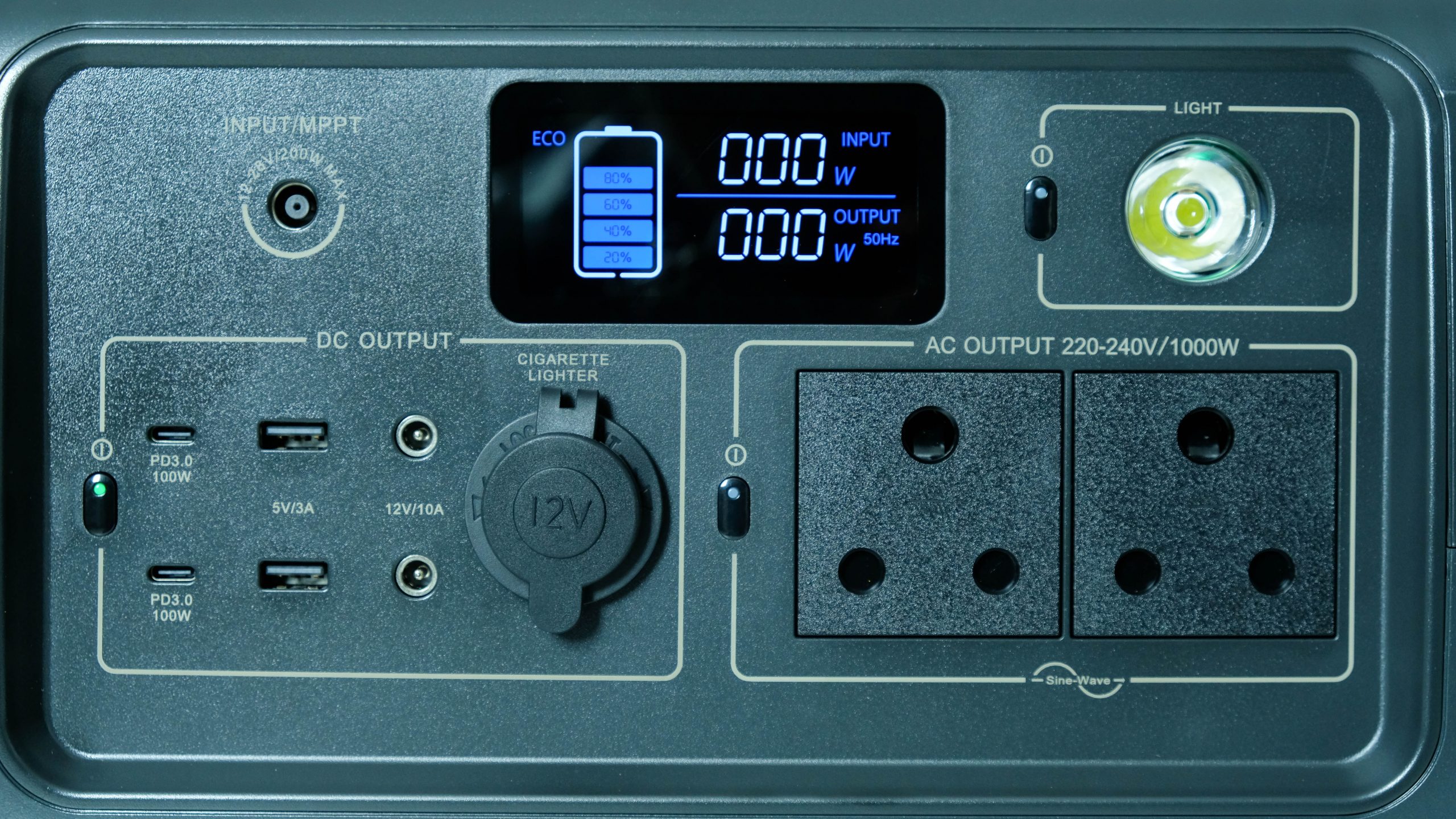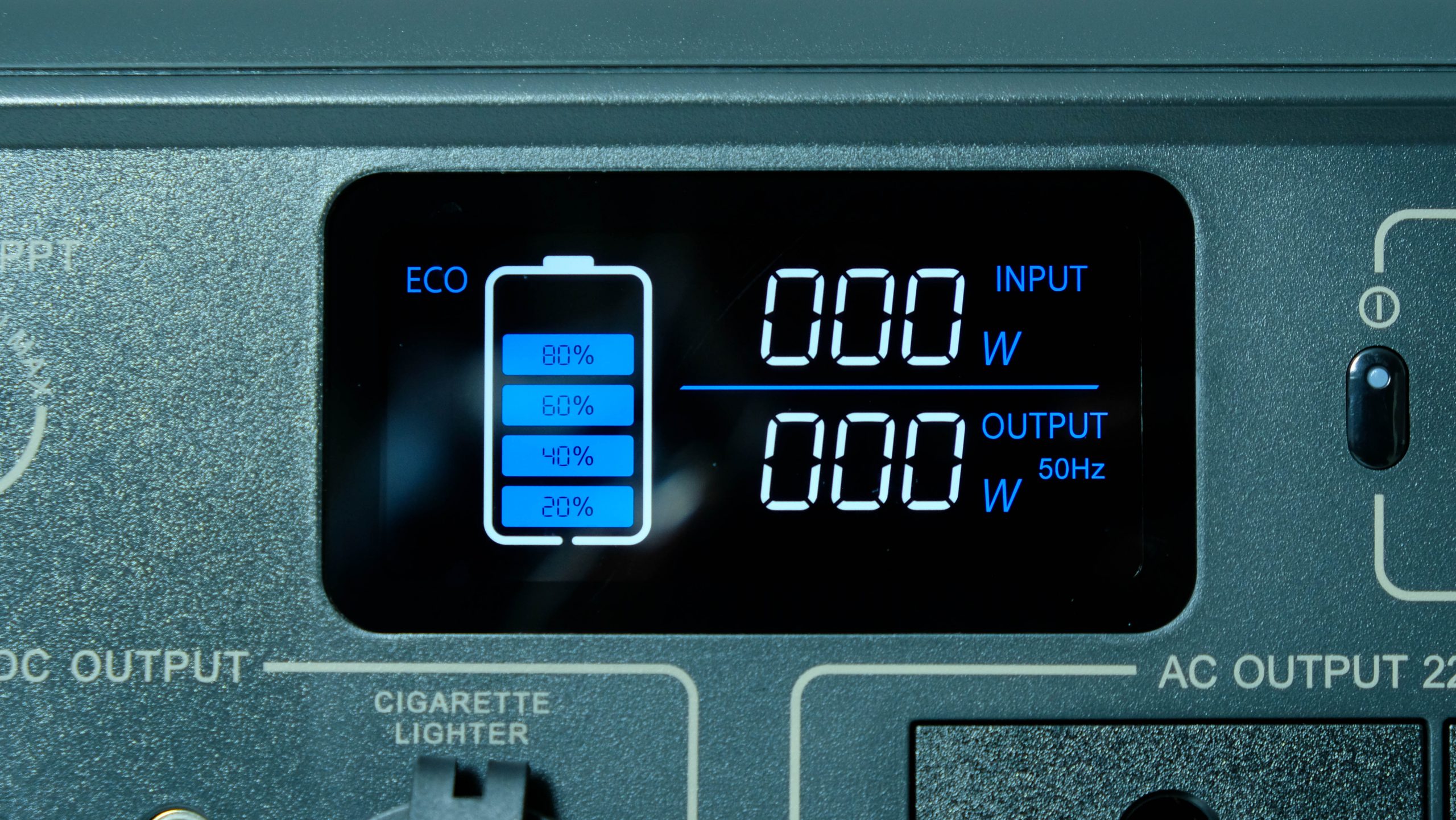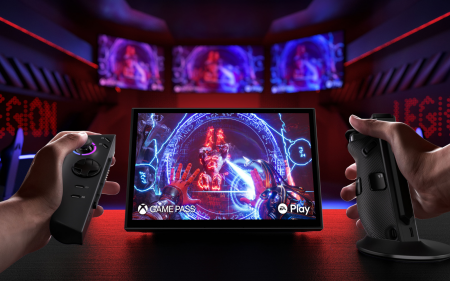It may lack a few of the fancier features that competitors offer but it's still a solid product in every sense. The battery's capacity is enough to make an outage comfortable and there are enough ports to allow you to run the combination you need. The only real drawback? Slow recharging.
-
Ease of Use
-
Battery
-
Practicality
-
Value
It’s 2024 and the country still experiences regular load shedding. Sure, we’re in the middle of a short break but we fully expect that outages will return. Products like the Bluetti EB70 Portable Power Station, to give it its full title, will ensure that the constant off-and-on won’t be too horrible to endure.
But you can say that about basically any backup battery. Does it have anything special to recommend over the vast swathes of other battery brands in the local market today? That’s a slightly more difficult question to answer. Sure, the Bluetti EB70 has a lot going for it but is it enough?
Built like a brick…
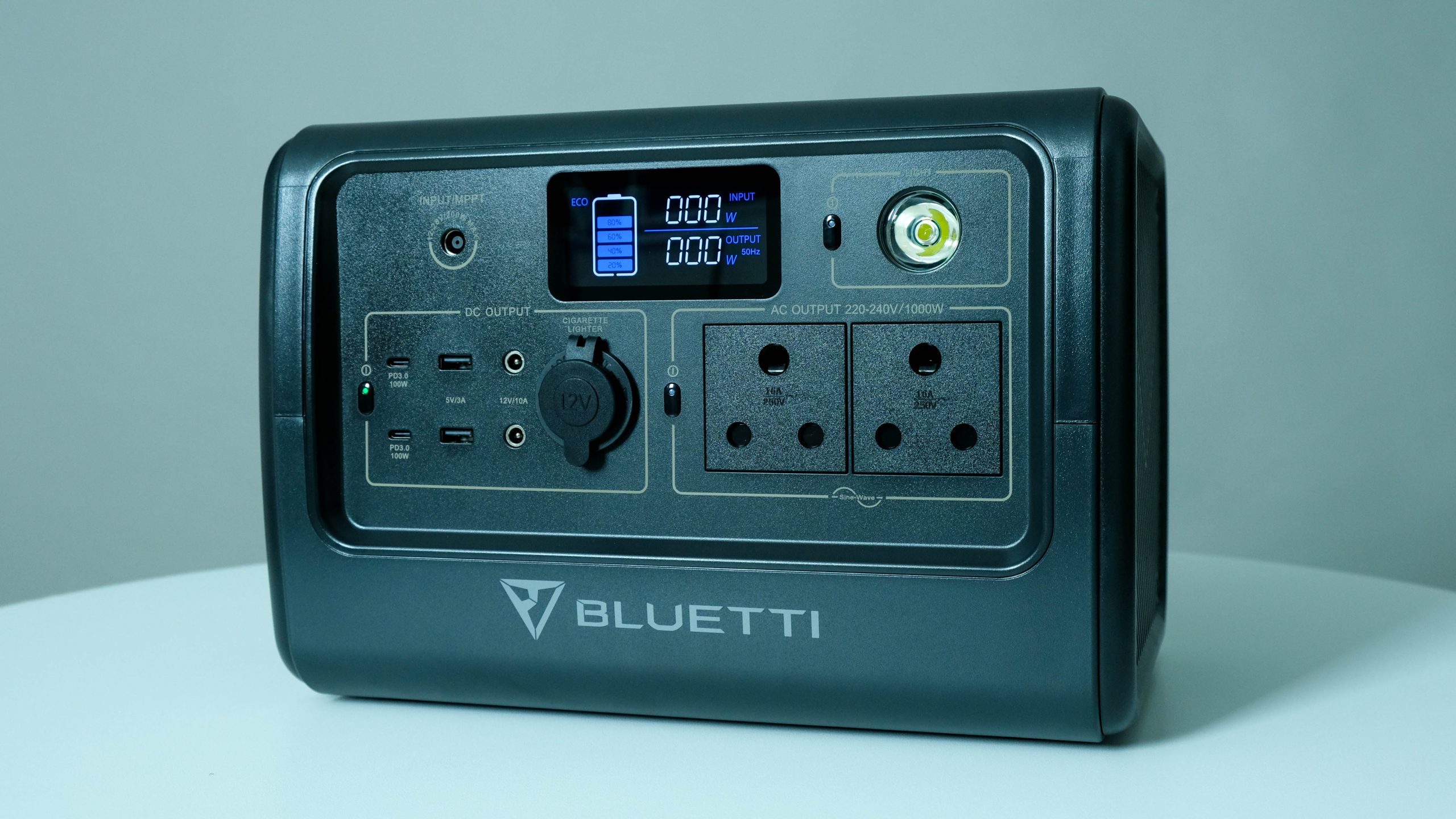
The Bluetti EB70 716Wh battery is a substantial rectangular brick of plastic that will blend into most darker corners. Stuff‘s images, shot under lights, make it seem more prominent than it really is. For all its monochrome nature, the various markings are readily visible. As is common with power stations, the various sections are grouped and powered independently. If you’re only after the 12V socket and a couple of USB ports, there’s no need to activate the AC output, for instance.
There are nine output ports in total and only a single input. If you’re hoping to use a portable solar panel or something similar to charge the EB70, you’ll have to make use of the included adaptor. Outputs consist of dual USB-C (100W each), USB-A, and 12V DC ports, as well as a single 12V socket. The remaining two are a pair of Type D AC sockets capable of delivering 220V of power with a draw of up to 1000W. There’s also an LED light with two levels of brightness, in case you need to see what you’re doing in the dark (spoiler: you do).
Station operation
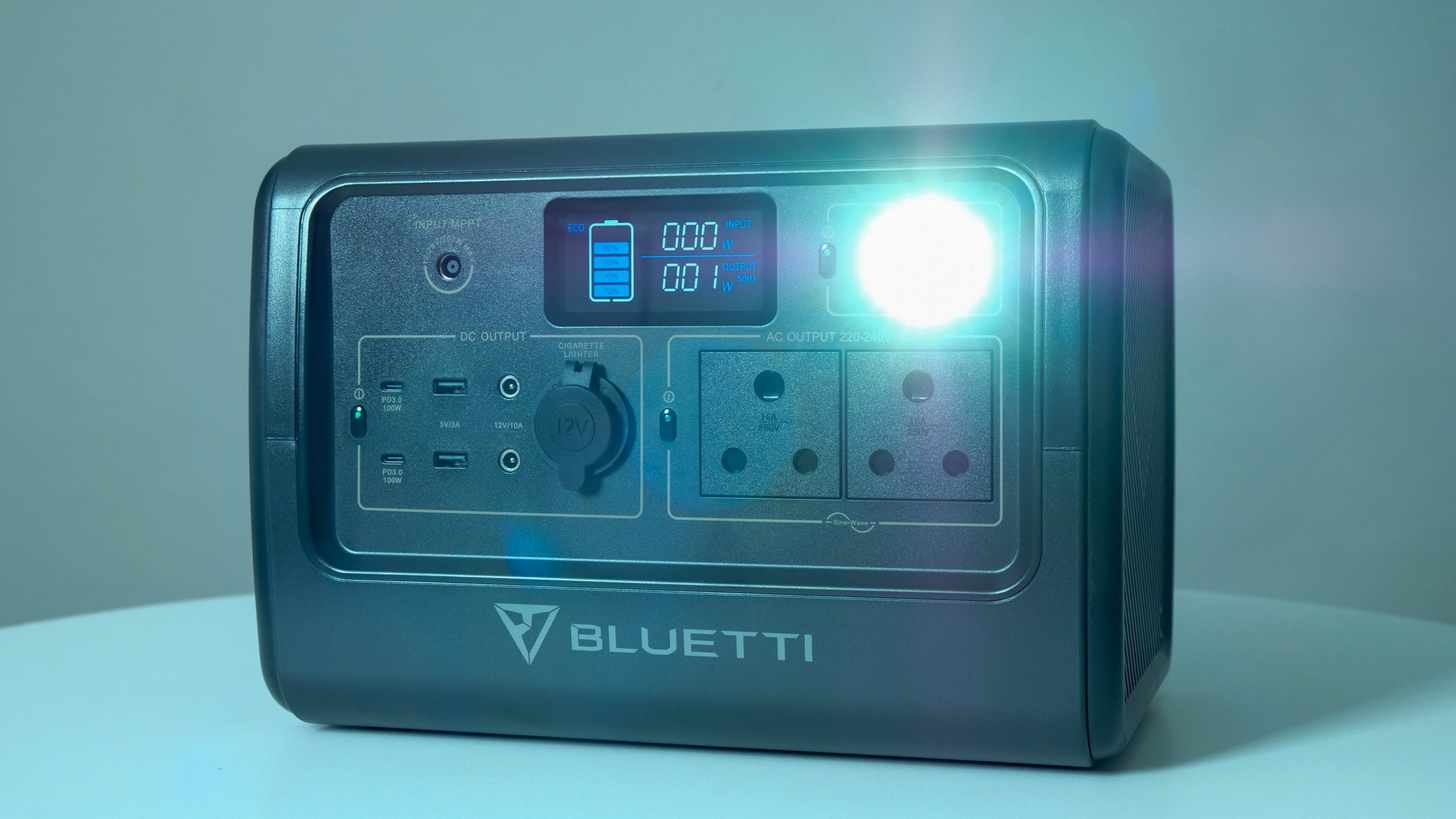 As with most power stations, Bluetti’s EB70 is a simple matter of plug-and-play. Plug in your TV and console and you’ll be able to play during Eskom’s outages. The same is true of other appliance combinations, obviously. The EB70’s operation is actually simpler than most products of its type. Any power button will begin proceedings, meaning there’s less fiddling in the dark if all you want is the LED, while shutdown calls for all the power buttons to be turned off.
As with most power stations, Bluetti’s EB70 is a simple matter of plug-and-play. Plug in your TV and console and you’ll be able to play during Eskom’s outages. The same is true of other appliance combinations, obviously. The EB70’s operation is actually simpler than most products of its type. Any power button will begin proceedings, meaning there’s less fiddling in the dark if all you want is the LED, while shutdown calls for all the power buttons to be turned off.
The LED display offers basic input/output information and also shows the battery level. The level indicator takes a second to fire up so it always looks like it’s flat for a few seconds before the bar climbs to the top. There’s little other information available, so there’s no problem with the LED shutting itself down a few minutes after it lights up. The info is still there and you can wake the LED if needed. You just won’t need to.
Trouble keeping up
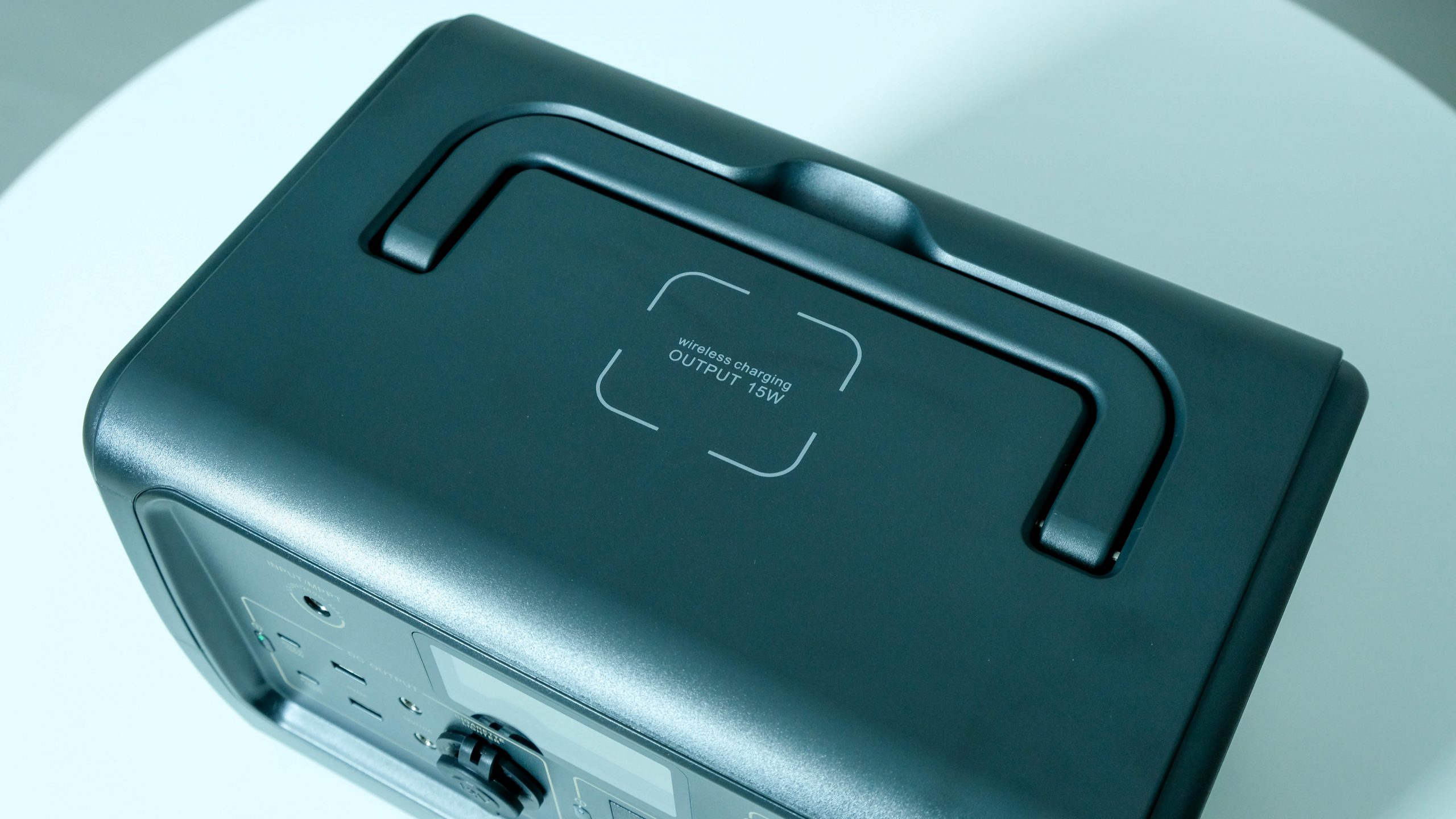 So far we’ve seen that the Bluetti EB70 is a competent power station, even if it’s a little short on features. There is one more feature, not counting the wireless charging pad built into the top of the unit, but it has its ups and downs. The feature is pass-through charging, a nice-to-have on most power stations. This one is a bit of a left-handed gift, however.
So far we’ve seen that the Bluetti EB70 is a competent power station, even if it’s a little short on features. There is one more feature, not counting the wireless charging pad built into the top of the unit, but it has its ups and downs. The feature is pass-through charging, a nice-to-have on most power stations. This one is a bit of a left-handed gift, however.
Generally, the EB70 operates in silence. You can connect a substantial power draw to the 716Wh battery and it’ll get on with the job without a mutter. But if you happen to connect the charger while this is going on, which has a chunky brick at its midpoint, you’ll be greeted by a lot of fan noise. This is a combination of things — the EB70’s internal fan but mostly it’s the power brick grumbling about being forced to work.
There’s also the charge speed to contend with. The Bluetti is capped at 200W, meaning it takes a few hours to get back up to full strength. Passthrough charging should help this, in theory, but we found that the unit struggled to maintain even that charging speed when powering something on the other side. Disconnection and recharge when it’s not needed is probably the better way to use this one. You lose the convenience of passthrough but you also lose the constant noise of the power brick.
Bluetti EB70 Portable Power Station verdict
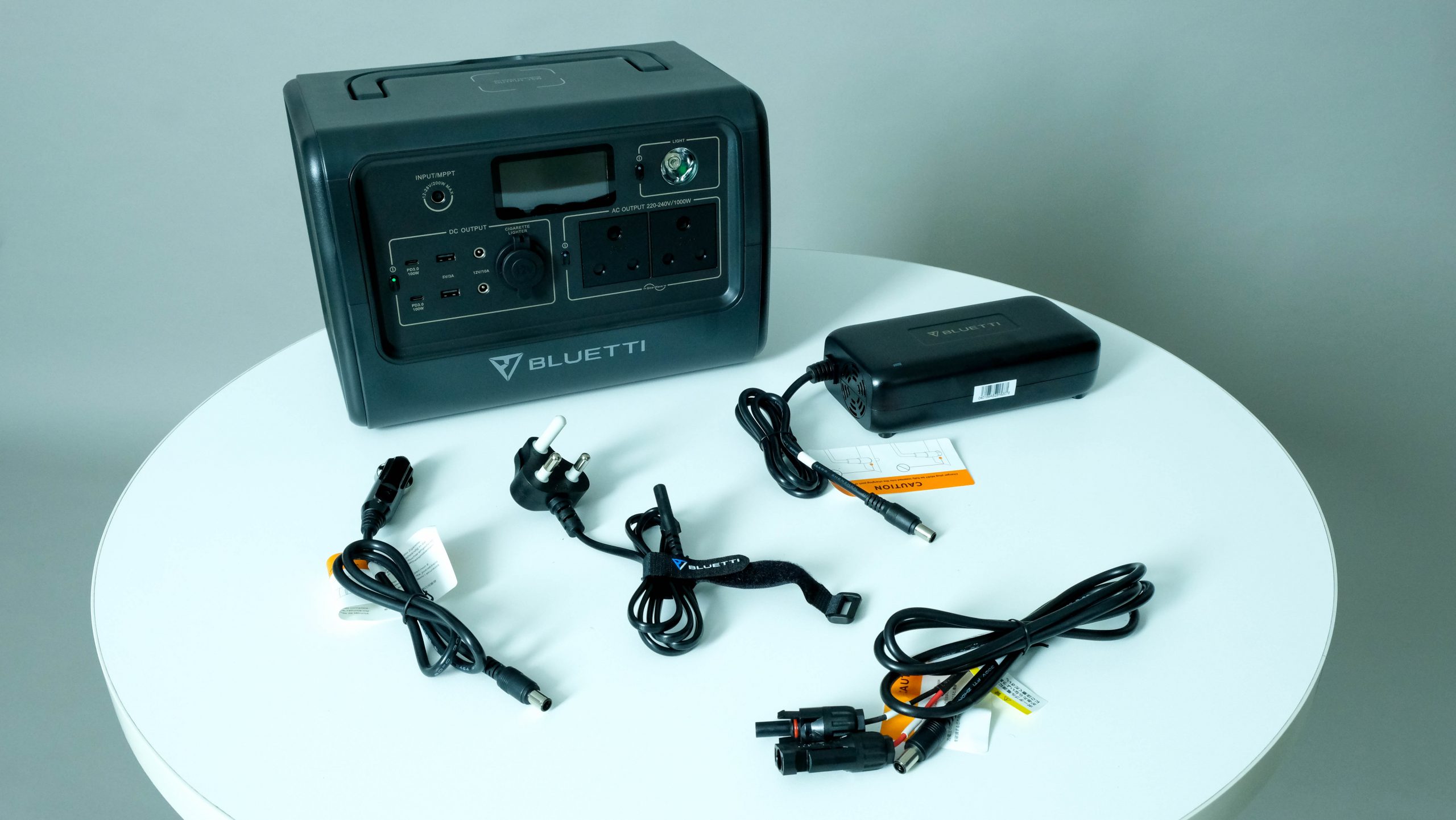 There’s plenty to like about the Bluetti EB70 716Wh power station. It’s super-simple to use, will power up to 1,000W of appliances (for a while) and the battery is substantial enough to keep you entertained for the length of a rugby game or more if you’re careful about what’s connected. The main drawback is the noisy power brick, which renders this unit’s passthrough charging more unpleasant than it should be.
There’s plenty to like about the Bluetti EB70 716Wh power station. It’s super-simple to use, will power up to 1,000W of appliances (for a while) and the battery is substantial enough to keep you entertained for the length of a rugby game or more if you’re careful about what’s connected. The main drawback is the noisy power brick, which renders this unit’s passthrough charging more unpleasant than it should be.
At R9,000, the current price for this backup battery, you won’t feel ripped off. Batteries with similar capacity (but also more features) are around R3,000 more expensive. It’s important that you know that the EB70 takes longer to top up than other LiFePo (lithium iron phosphate) batteries we’ve tested. That might be an immediate downside but it could pay off with a longer battery lifespan. We haven’t tested this one for long enough to be sure of that but hey, it could happen.

